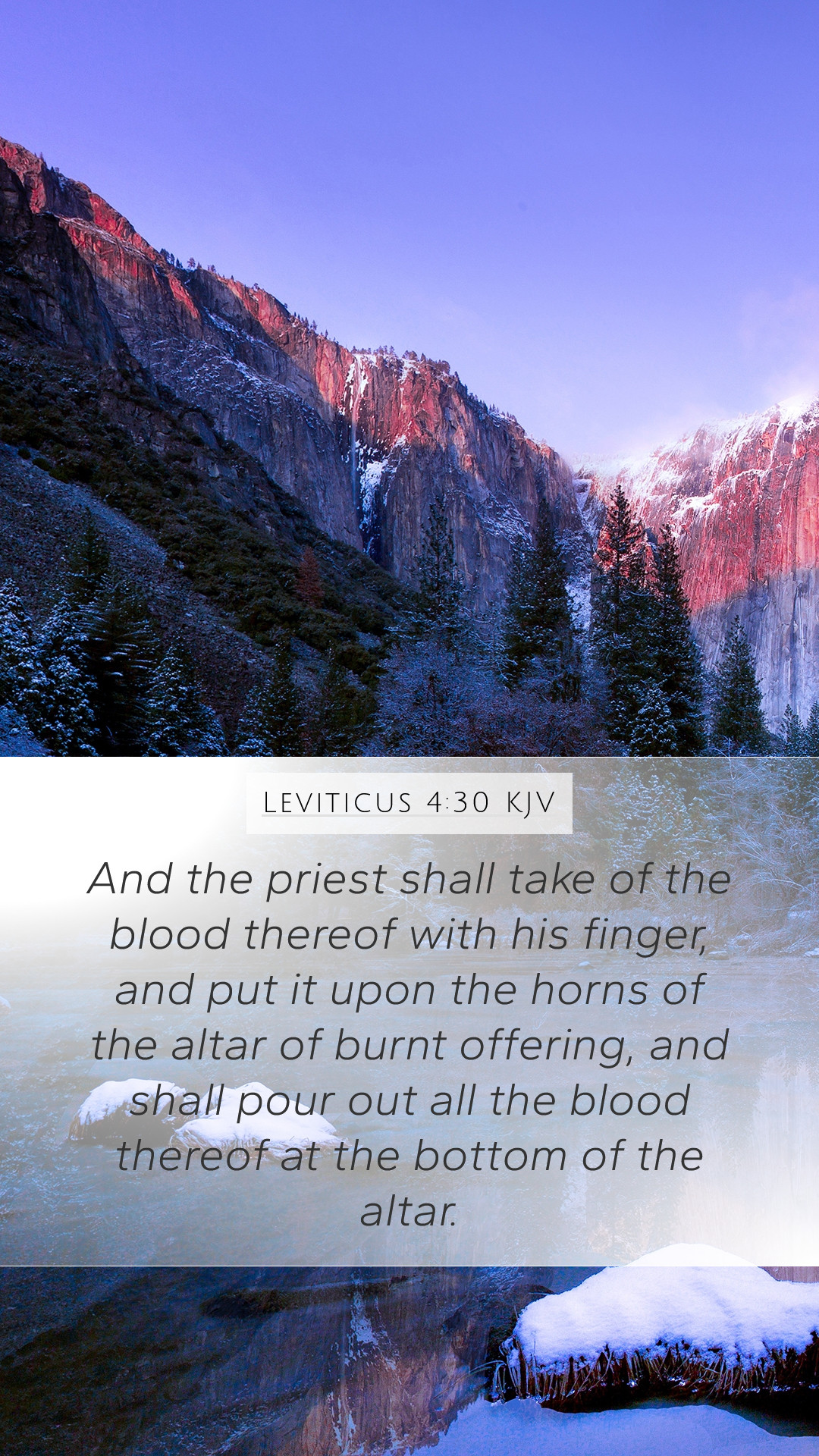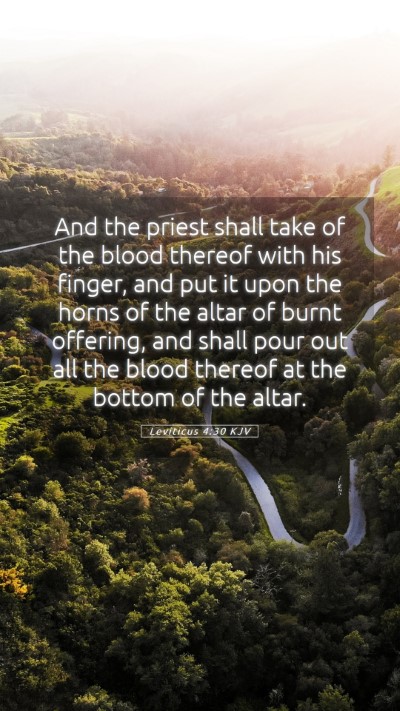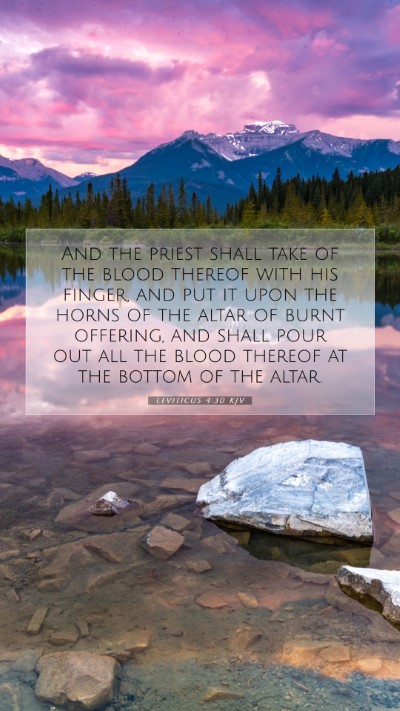Understanding Leviticus 4:30
Leviticus 4:30 states: "And the priest shall take of the blood thereof with his finger and put it upon the horns of the altar of burnt offering, and shall pour out all the blood at the bottom of the altar." This verse pertains to the sacrificial system established in the Old Testament, illustrating the process for atoning sin through animal sacrifices.
Contextual Overview
The book of Leviticus is primarily concerned with the law and the proper way to worship God. Leviticus 4 deals with the sin offering, particularly emphasizing the role of the priest and the significance of blood in the atonement process.
Bible Verse Meaning
According to Matthew Henry, this verse underscores the importance of the blood in the sacrificial system. Blood represents life and is used to signify the seriousness of sin and the necessary means of atonement. The action of the priest in applying the blood to the altar indicates God's acceptance of the sacrifice, facilitating reconciliation between Him and the sinner.
Albert Barnes elaborates on the symbolism of blood in the sacrificial practices. He notes that this practice served a dual purpose: it reminded the Israelites of their constant need for atonement while also pointing forward to the ultimate sacrifice of Jesus Christ, which would fulfill the need for bloodshed as atonement for sin. The priest's actions are thus not only functional but deeply symbolic of a greater spiritual reality.
Adam Clarke provides an interpretation emphasizing the procedural integrity of the sacrificial rites. He explains that each step serves to teach the people about the holiness of God and the seriousness of sin. The careful action taken by the priest in handling the blood reflects the sanctity of the offerings and the need for proper ritual to maintain a relationship with God.
Key Themes and Insights
- The Atonement of Sin: The sacrifice of the animal and the use of its blood represent the necessary atonement for sin, highlighting the ongoing need for repentance and forgiveness.
- The Role of the Priest: This verse illustrates the intermediary role of the priest between God and the people, affirming the importance of having a mediator in approaching God.
- Symbolism of Blood: Blood in the Old Testament signifies life, making it a crucial element in understanding God's justice and mercy in relation to sin.
- Preparedness for Worship: The ritualistic nature of the sacrificial offerings prepares the hearts of the individuals to engage in worship and seek God earnestly.
Application for Today
The principles of Leviticus 4:30 resonate today in terms of understanding the cost of sin and the necessity for grace. Just as the Israelites relied on the atonement provided through sacrifices, Christians recognize the ultimate sacrifice of Jesus Christ that covers all sin. This verse can guide believers in appreciating the gravity of sin and the grace offered through faith in Christ.
Cross References
- Exodus 29:12 - Discusses the consecration of the altar using blood.
- Hebrews 9:22 - States that without the shedding of blood, there is no forgiveness of sin.
- Leviticus 17:11 - Elaborates on the significance of blood for atonement in the sacrificial system.
Conclusion
In summary, Leviticus 4:30 serves as a crucial reminder of the eternal need for atonement, the seriousness of sin, and the role of Jesus Christ as the ultimate sacrifice. Through studying this verse, believers gain profound insights into how the principles of ritual and sacrifice apply to their daily lives and relationship with God.
For those interested in further exploring Bible verse meanings and understanding Scripture, engaging in Bible study groups and utilizing Bible study tools can enhance comprehension and application of such foundational biblical truths.


